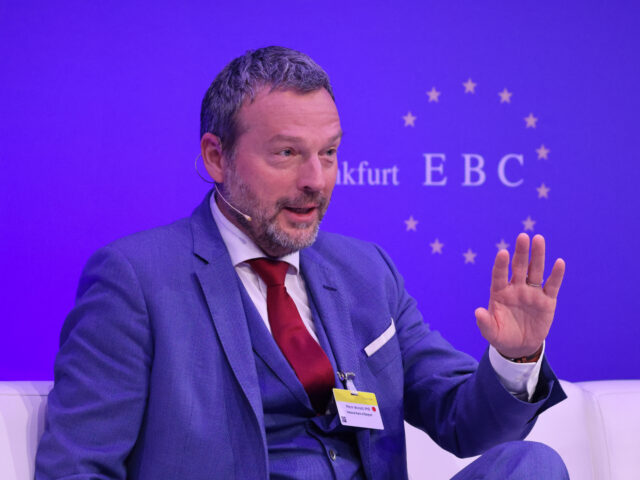European lawmakers should level with the public about the economic costs of “greening” the economy which will come with similar supply shocks to the energy crises of the 1970s, the head of Belgium’s central bank said this week.
Appearing before the European Parliament in Brussels this week, Governor at the National Bank of Belgium Pierre Wunsch urged Eurocrats to be honest about the negative ramifications of the bloc’s climate agenda so they won’t have to face the anger of disappointed voters when they find out that the promises of a green economic miracle do not materialise.
“This transition is not going to make us collectively richer,” Wunsch said in comments reported by POLITICO. “We should be more candid… don’t lure people into thinking that greening carries positive opportunities that could augment GDP and create millions of well-paid jobs.”
In a stark prediction, the central banker warned that carbon price capping schemes and the higher costs of allegedly greener forms of energy could result in European energy prices being as much as five to eight times more expensive than in the United States where the shale gas revolution has mitigated global supply shocks in the energy market and looks to make America one of the top producers and exporters of energy for decades to come.
Wunsch said that as opposed to the United States, Europe with its green agenda will see similar price shocks to the energy market to the oil crises of the 1970s. He argued that European leaders should stop living in denial about this reality if they wish to retain any credibility with their citizens, warning that “without credibility, the first concrete signs of emerging problems will encourage popular anger and protest.”
The Belgian economist also cast doubt on the very strategy of the EU to make the green transition easier, saying that simply “throwing massive amounts of money [at] problems just to mitigate their effects is not a panacea.” He argued that Brussels should instead focus on reducing the heavy regulatory burden it has imposed upon industry.
The European Union’s radical green agenda risks sparking widespread political unrest as seen during the Yellow Vest movement in France as energy prices soar throughout the bloc. https://t.co/ZyipNZDirZ
— Breitbart News (@BreitbartNews) September 14, 2021
Overregulation and the green agenda is set to be a key issue as 400 million Europeans head to the polls in June to decide the makeup of the next EU Parliament.
Amid inflation resulting from supply chain issues caused by the coronavirus lockdowns and the war in Ukraine in addition to the burdens of the climate goals of Brussels and neo-liberal national governments, farmers have risen up throughout Europe in protest as their business and way of life become increasingly unfeasible.
The protests, which have seen European capitals and critical infrastructure blockaded by thousands of farmers in their tractors, have garnered widespread support from the public as well as from populist parties, who argue that the globalist vision of elites in Brussels, Berlin, and Paris are already having negative economic ramifications.
While the EU made some minor concessions on the Net Zero climate agenda after farmers crashed the latest Brussels summit, European Commission President Ursula von der Leyen argued on Tuesday that the bloc should double down on the green push.
In a speech marking the 50th anniversary of the creation of the International Energy Agency, the EU chief said: “Massive investment will be needed. Not only in renewable energy capacity but in interconnectors, in clean tech, and of course, and it has been said, in the relevant supply chains. So we will need to mobilise the private sector, and we are working right now to intensify our dialogue with them.”
Rather than taking the advice of the Belgian central banker on leveling with the public about the costs, von der Leyen claimed that the green transition will “create new economies of scale. They will make clean energy more affordable and cost competitive, all across the world, including in the Global South.”
Macron suggested the imposition of a global taxation system in order to subsidize the green agenda to mitigate climate change. https://t.co/pqsGgu1SnK
— Breitbart News (@BreitbartNews) June 24, 2023

COMMENTS
Please let us know if you're having issues with commenting.